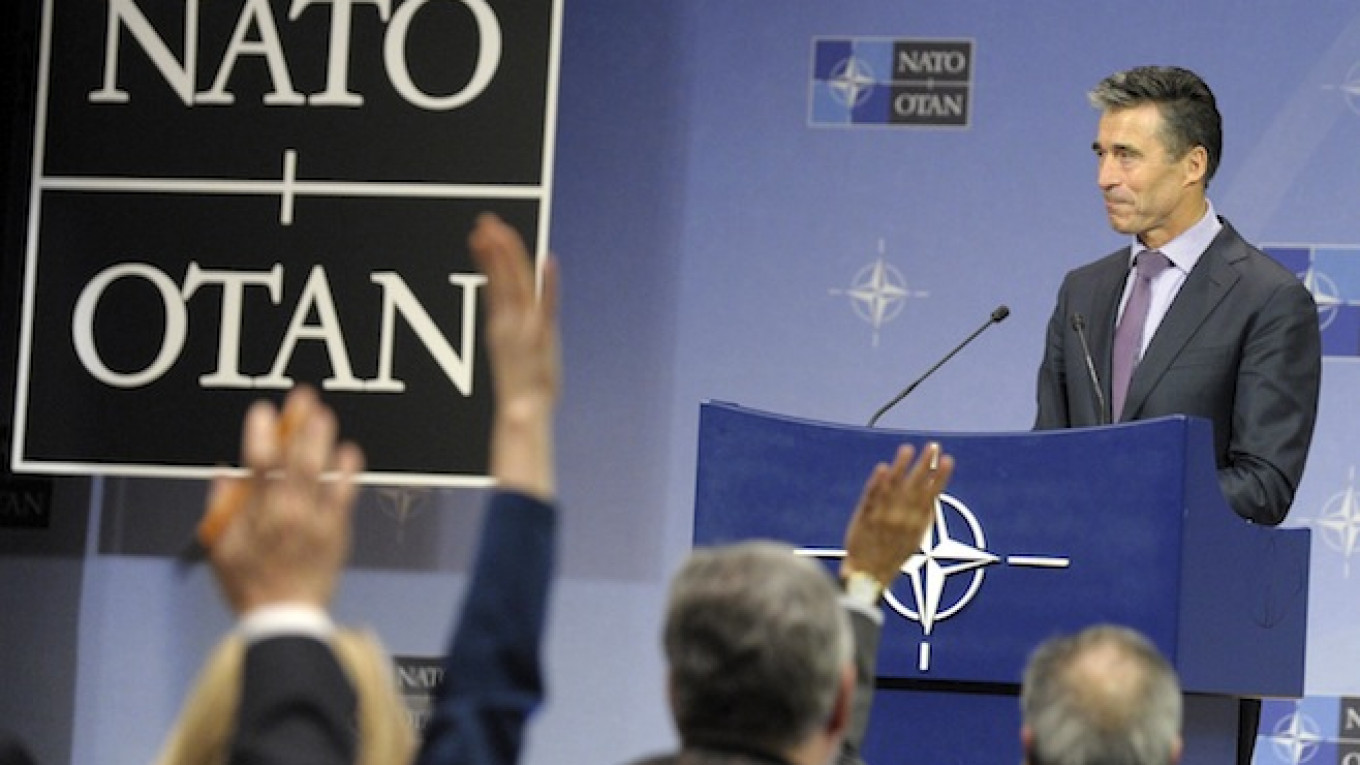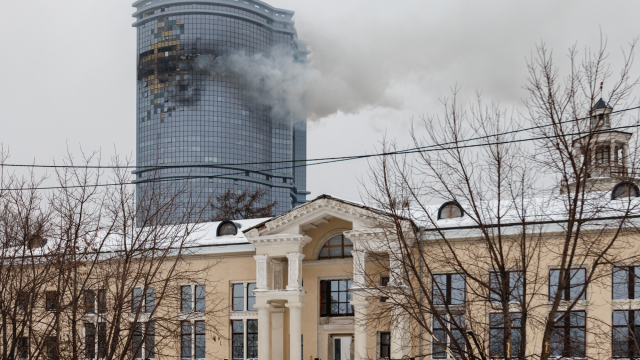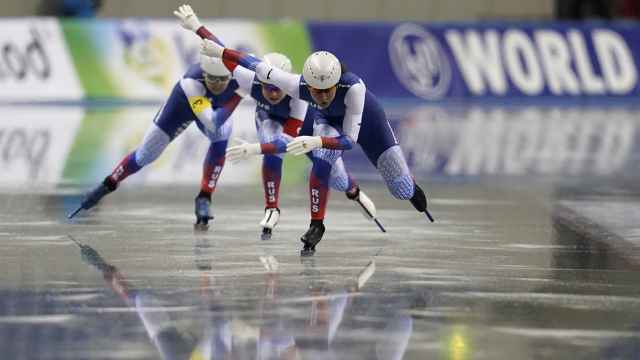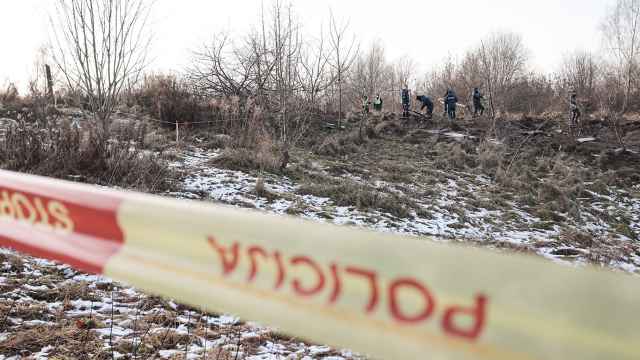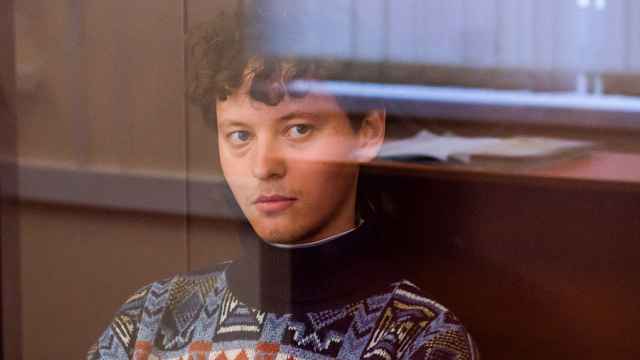Russia has recalled its top military representative to NATO for consultations, widening the rift between Moscow and the Western alliance over Moscow's annexation of Ukraine's Crimea region.
Russia's action last month has caused the deepest crisis in East-West relations since the Cold War, leading the West to impose sanctions and stirring fears that President Vladimir Putin has territorial designs beyond Crimea, a Black Sea peninsula with its Russian-majority population.
The recall to Moscow of General Valery Yevnevich, a typical form of diplomatic protest, follows a decision by NATO this week to suspend cooperation with Russia in response to its occupation of Ukraine's Crimea Peninsula.
"We don't see an opportunity to continue military cooperation as usual with NATO," Deputy Defence Minister Anatoly Antonov said Wednesday, RIA Novosti reported. "We have decided to recall the chief Russian military representative at NATO … to Moscow for consultations."
NATO simply said it took note of the Russian decision.
Earlier, Russia said it wanted answers from NATO on its activities in eastern Europe after the Western military alliance promised to beef up defenses for its eastern members.
That drew a strong reaction from NATO chief Anders Fogh Rasmussen, who accused Russia of "violating every principle and international commitment it has made, first and foremost the commitment not to invade other countries".
Estonian Prime Minister Taavi Roivas said after talks with Rasmussen in Brussels that allies had accepted Estonia's offer of its Amari air base as a second location for NATO fighter planes to patrol the air space over the three Baltic states. The fighters have until now been based in Lithuania.
NATO has ordered military planners to draft measures to reassure nervous Eastern European countries — which were under Moscow's domination until the end of the Cold War more than two decades ago — but stopped short of calls by Poland to base more forces there.
Differences Over 1997 Treaty
Russian Foreign Minister Sergei Lavrov said any increase in NATO's permanent presence in eastern Europe would violate a 1997 treaty on NATO-Russian cooperation.
"We have addressed questions to the north Atlantic military alliance. We are not only expecting answers, but answers that will be based fully on respect for the rules we agreed on," Lavrov told reporters at a briefing with his Kazakh counterpart.
Rasmussen said he had not received any questions from Russia and said Russian "accusations" were "just propaganda and disinformation."
Foreign ministers from the 28-nation, U.S.-led NATO met this week to discuss responses to Russia's Crimea takeover, including sending NATO soldiers and equipment to allies in eastern Europe, holding more exercises, ensuring NATO's rapid-reaction force could deploy more quickly, and reviewing NATO's military plans.
Military planners have been asked to come back with detailed proposals by April 15.
Rasmussen said that what NATO was doing was in line with the 1997 agreement with Russia in which NATO agreed to defend eastern European members through reinforcements rather than by permanently basing substantial additional combat forces there.
"In the same document, Russia pledged to respect territorial integrity, sovereignty and political independence of other states and refrain from the threat or use of force, and that is exactly what Russia is not doing," he said.
The U.S. and other NATO allies have already responded to the crisis by offering more planes to take part in regular NATO air patrols over the Baltic States, which were once Soviet republics. The U.S. has beefed up a previously planned training exercise with the Polish air force.
NATO military chiefs are concerned that an estimated 40,000 Russian forces near the Ukrainian border may signal plans by Putin to move beyond Crimea into eastern and southern Ukraine, which also have significant Russian-speaking populations.
Russian forces seized Crimea after mass protests toppled Ukraine's pro-Russian president. Moscow denounced this as a coup driven by right-wing extremists and said it reserved the right to protect Russian speakers in Ukraine, but denied having any intention to move into other areas of the ex-Soviet republic.
Lavrov responded to criticism over the size of the force along Russia's border with Ukraine by saying Moscow had the right to move troops on its territory and they would return to their permanent bases after military exercises.
A Message from The Moscow Times:
Dear readers,
We are facing unprecedented challenges. Russia's Prosecutor General's Office has designated The Moscow Times as an "undesirable" organization, criminalizing our work and putting our staff at risk of prosecution. This follows our earlier unjust labeling as a "foreign agent."
These actions are direct attempts to silence independent journalism in Russia. The authorities claim our work "discredits the decisions of the Russian leadership." We see things differently: we strive to provide accurate, unbiased reporting on Russia.
We, the journalists of The Moscow Times, refuse to be silenced. But to continue our work, we need your help.
Your support, no matter how small, makes a world of difference. If you can, please support us monthly starting from just $2. It's quick to set up, and every contribution makes a significant impact.
By supporting The Moscow Times, you're defending open, independent journalism in the face of repression. Thank you for standing with us.
Remind me later.


